 Petzlover
Petzlover Both Oriental Bicolour and Ragamuffin are originated from United States. Both Oriental Bicolour and Ragamuffin are having almost same weight. Oriental Bicolour may live 3 years less than Ragamuffin. Both Oriental Bicolour and Ragamuffin has same litter size. Oriental Bicolour requires Low Maintenance. But Ragamuffin requires Moderate Maintenance
Both Oriental Bicolour and Ragamuffin are originated from United States. Both Oriental Bicolour and Ragamuffin are having almost same weight. Oriental Bicolour may live 3 years less than Ragamuffin. Both Oriental Bicolour and Ragamuffin has same litter size. Oriental Bicolour requires Low Maintenance. But Ragamuffin requires Moderate Maintenance
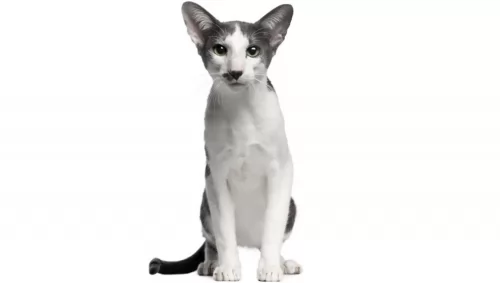 Oriental Bicolour cats owe their origins to Lindajean Grillo of Ciara Cattery. The cats hail from the United States. It was in 1979 that Grillo paired a Siamese and bicolored American Shorthair, selecting the best bicolored offspring to mate again with Siamese or Orientals.
Oriental Bicolour cats owe their origins to Lindajean Grillo of Ciara Cattery. The cats hail from the United States. It was in 1979 that Grillo paired a Siamese and bicolored American Shorthair, selecting the best bicolored offspring to mate again with Siamese or Orientals.
This particular variety was granted recognition in 1983 by TICA. It was during the 1980s that European breeders started their own Oriental bicolor breeding lines. The first modern Oriental Bicolours were imported to the UK during 2004.
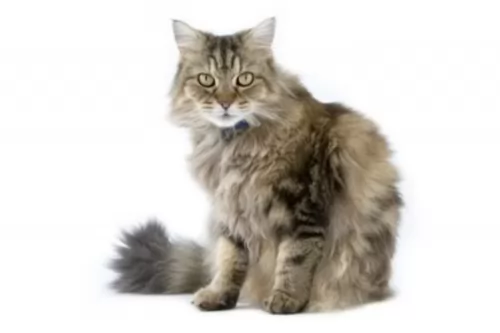 The beautiful Ragamuffin cat is a domestic feline that was established as a separate breed in 1994. It is a variant of the Ragdoll cat.
The beautiful Ragamuffin cat is a domestic feline that was established as a separate breed in 1994. It is a variant of the Ragdoll cat.
It was during the 1960s that a regular long-haired cat that was also white and non-pedigreed produced different litters of kittens, one of which was an unusually docile litter of kittens.
The history of the RagaMuffin can in fact be traced back to the founder of the Ragdoll cat breed, Ann Baker. Breeders working with Ann decided to create their own breed, the Ragamuffin, in 1994. It is a fairly new breed and the Ragamuffin has inherited quite a lot of the Ragdoll cat’s qualities. It arrived in the UK in 2009.
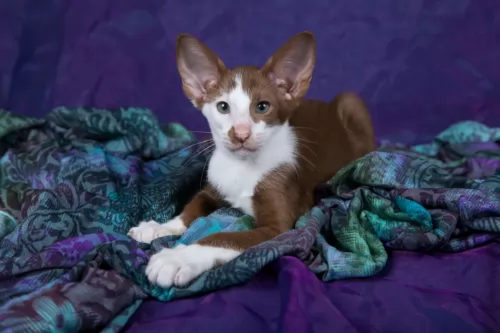 These cats with a triangular-shaped head and slender, long body have a fairly thin tail. The ears are widely set and are large. The eyes are green, but blue with the colorpoint varieties.
These cats with a triangular-shaped head and slender, long body have a fairly thin tail. The ears are widely set and are large. The eyes are green, but blue with the colorpoint varieties.
The coat is short, close-lying and sleek while the coat of the long-haired variety is fine and silky with no thick undercoat. The tail forms a plume. The coat is mostly white and the other part of the coat can be in any other color. You’ll always see quite a bit of white around the legs.
These cats are suited for singles, couples, families, and seniors - in fact, anyone still active enough to provide this cat with lots of attention.
These vibrant cats are known for their social, friendly and loving personality. They are intelligent, inquisitive, active cats that need to have plenty of interaction with their human family members. They love their human family and love to hold conversations with them.
They're entertaining too, and love nothing more to ve the center of attention. They're so into their human family that you may even have him waiting patiently for you to come home fro work. He shouldn't be left alone for hours on end and should rather have a pet friend to keep him company during the day.
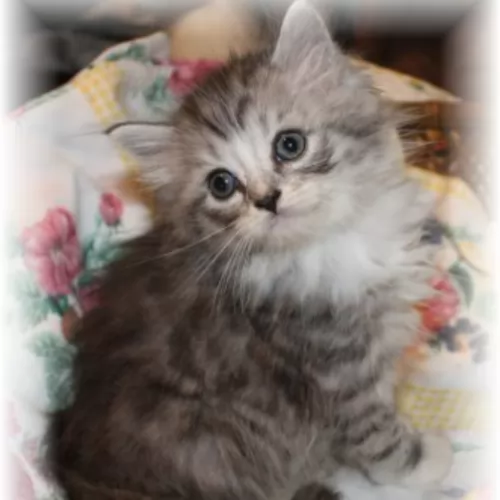 Ragamuffins are large, muscular cats and some of the larger ones can weigh up to 9kg.
Ragamuffins are large, muscular cats and some of the larger ones can weigh up to 9kg.
The chest of the cat is broad, he has a broad head and a well-plumed tail. These medium- to semi-longhaired cats have a thick, plush, silky coat with a ruff around the neck.
The coat is available in a number of colors and patterns, but popular colors are tabby with white, brown, blue and tortoiseshell. The nose of the Ragamuffin is shorter than that of the Ragdoll and the eyes are walnut-shaped. The eyes can be green, blue, or gold.
The Ragamuffin cat is a little bit more energetic than the Ragdoll and is a loving, loyal member of his human family. He is a large but docile cat. These cats are amicable, playful and also intelligent.
Many people train them to walk easily on a leash. They make great companions for single people or families.
Calm and unruffled, he makes the perfect family pet. People are always ready to make a fuss of them because of their beauty and they are always ready to lap up the attention. In fact, these big cats are so fond of attention from their owners that they don’t like being left alone for long periods of time.
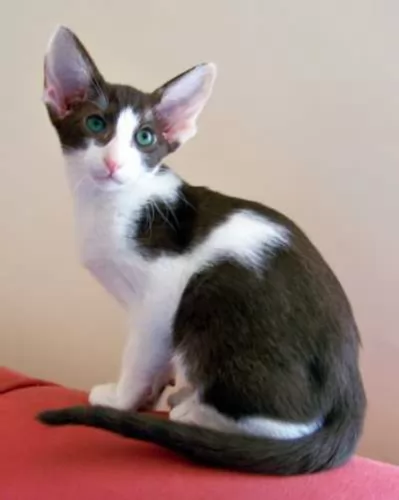 The Oriental Bicolor is such a wonderful pet to have. They are intelligent, entertaining, loving, active, playful, and inquisitive.
The Oriental Bicolor is such a wonderful pet to have. They are intelligent, entertaining, loving, active, playful, and inquisitive.
They’re also athletic and energetic. These cats have got all the characteristics you want in a good friend. They make a fantastic companion to people who are active and happy. They’re also very vocal and have a lot to say to their human family.
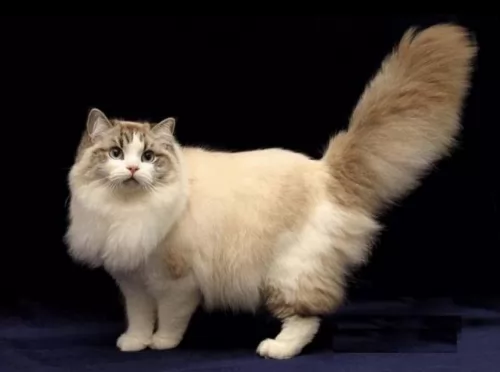 Your RagaMuffin promises to make you a splendid pet. He is such an amicable cat, being social and friendly with his human family.
Your RagaMuffin promises to make you a splendid pet. He is such an amicable cat, being social and friendly with his human family.
He also gets along with your visitors and any other pets you have in the house. Children love his playful, easy-going nature.
Having a Ragamuffin cat in your home is such a pleasure and this large cat is willing to go out of his way to be the perfect pet and companion for you.
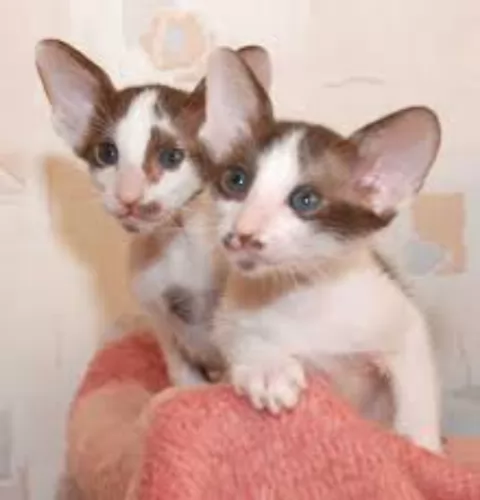 Any cat can develop health problems. Even kittens that come with a certificate of health can develop illnesses that you never thought possible.
Any cat can develop health problems. Even kittens that come with a certificate of health can develop illnesses that you never thought possible.
Orientals are generally healthy cats, but the health issues that may affect the Oriental are similar to that of the Siamese cat.
One of these is Progressive Retinal Atrophy (PRA). This is a genetic eye problem that can lead to blindness. Another disease to look out for is Asthma. The Siamese is susceptible to this disease which means your Oriental Bicolor will also be. You will have to get your furry friend to the vet who may precribe anti-inflammatory drugs.
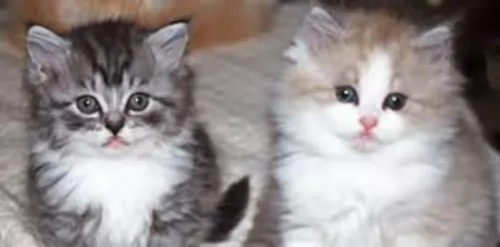 Ragamuffins are healthy cats with no known inherited diseases, but as with all cats you want to know something of the diseases that can plague cats.
Ragamuffins are healthy cats with no known inherited diseases, but as with all cats you want to know something of the diseases that can plague cats.
You’ll want to check that your Ragamuffin has been tested for Hypertrophic cardiomyopathy as well as Polycystic kidney disease.
This is a commonly diagnosed cardiac disease in cats. Feline Hypertrophic Cardiomyopathy causes the muscular walls of a cat's heart to thicken. The heart can no longer work sufficiently. It seems as though genetics plays a role as there are some cats that seem to battle with this disease more than others.
If you catch the disease early enough, the vet can devise a treatment plan to improve the cat’s quality of life.
Although you find this disease more frequently in Persian cats, this inherited disorder can be found in other cat breeds too. Liquid-filled sacs develop in the kidneys, growing in size and taking over kidney tissue which ultimately leads to kidney failure. Your cat will have nausea, vomiting, weight loss, and lethargy, and your cat will have to get to the vet.
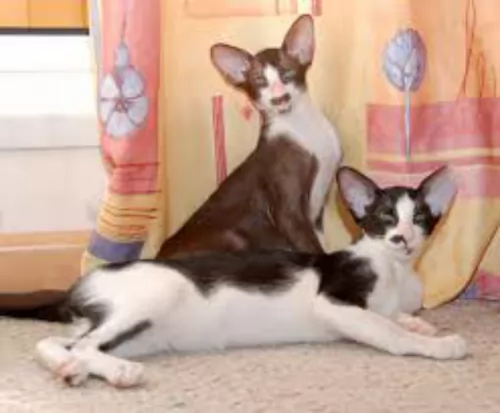 The Oriental Bicolor will require a brushing once a week. A good idea is to also take a warm, damp cloth and to wipe your cat down. It’s an excellent way to rid your cat of loose hairs as well as dust. The cat has a sparse coat, so brush him gently.
The Oriental Bicolor will require a brushing once a week. A good idea is to also take a warm, damp cloth and to wipe your cat down. It’s an excellent way to rid your cat of loose hairs as well as dust. The cat has a sparse coat, so brush him gently.
Other grooming requires nail clipping and checking inside his ears. If you clean his ears, be careful not to go deep into the ear. It is precisely why so many cat owners take their cat to the pet groomers where they can do these things professionally.
It’s very important to keep your Bicolor’s litter box spotlessly clean because like most cats, they won’t use their litterbox if it’s still got yesterday’s feces in it. It needs to be cleaned every day.
The Oriental’s diet is much like that of other cats – it has to be meaty. You can’t afford to not understand your feline pet’s dietary needs. Cats are carnivorous and they need commercial cat food that will be equal to fresh meat that they would normally find in the wild.
They need foods high in protein but they will still need some carbohydrates, amino acids, and vitamins, and minerals. Always go for the best quality pet cat foods because by buying the poorer quality ones you put your cat at risk of developing health problems. Never ever leave your cat without a constant supply of fresh, cool drinking water.
Supply your cat with all the things that make it a pleasure to have a cat. You don’t want to bring your pet home and only then start looking for things to make him at home. He’ll need food and water bowls, a nice warm, soft bed, a litter box, grooming accessories, collar, toys climbing tree and scratching pole.
Have your pet neutered or spayed to prevent unwanted kittens.
Make sure he is taken to the vet when ill. You shouldn't own a pet if you can't afford to pay vet fees. There are some cat illnesses that can make your cat very sick and uncomfortable. He should have his vaccines and also be treated for parasites.
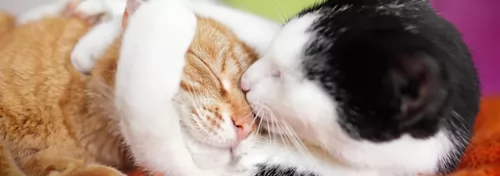 The Ragamuffin's longish coat will require some brushing at least once a week to keep it soft and silky.
The Ragamuffin's longish coat will require some brushing at least once a week to keep it soft and silky.
These are big cats so you will need to provide him with an adequate diet. He is a carnivore and will therefore require meat.
Kittens will eat 4 meals a day while the adult Ragamuffin can have 2 bowls of food. Cats can sometimes be fussy eaters so you want to be sure to give him what he likes from the wet and dry cat goods you get.
The better quality food he eats, the healthier he will be. Your Ragamuffin's dietary needs will also depend on his age.
He should never be without a constant supply of fresh, cool water.
If you have any questions about how to look after your Ragamuffin in the best possible way, speak to your local vet.